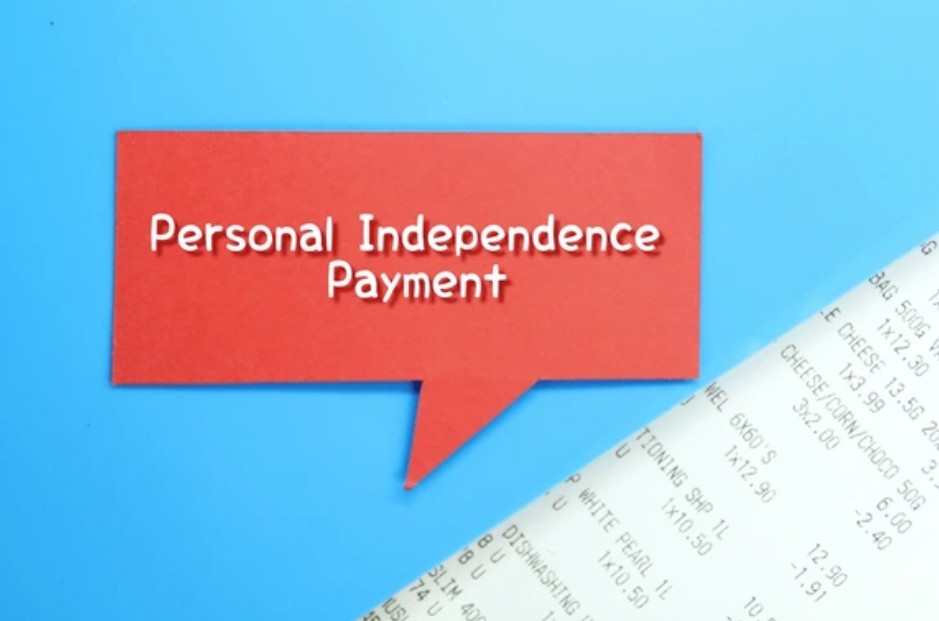If you’re living with a disability or long-term health condition in the UK, access to reliable transport can make a life-changing difference. From getting to medical appointments, to staying connected with work, friends, and family — having a car isn’t just a convenience; for many, it’s a necessity.
This leads to a common question among Personal Independence Payment (PIP) claimants:
Can I get a mobility car on standard rate PIP?
It’s a straightforward question, but the answer involves understanding exactly how PIP works, how the Motability Scheme operates, and what options are available if you don’t currently qualify. In this guide, we’ll break it all down in plain English.
What Is PIP and How Does It Work?

Personal Independence Payment (PIP) is a benefit provided by the UK government to help individuals with long-term health conditions or disabilities manage the additional costs they face. It’s not means-tested, which means it isn’t based on income or savings, and it’s available to people aged 16 to State Pension age.
PIP is divided into two components:
- Daily Living Component – for support with day-to-day tasks like washing, dressing, or eating.
- Mobility Component – for help with moving around or planning and following journeys.
Each component can be paid at one of two levels:
- Standard rate
- Enhanced rate
Your award is based on how your condition affects you, not the condition itself.
What Is the Motability Scheme?
The Motability Scheme is a UK initiative that allows eligible disabled people to lease a brand-new car, scooter, or powered wheelchair by exchanging their qualifying mobility allowance. The scheme covers:
- Vehicle lease and road tax
- Insurance for up to 3 named drivers
- Breakdown cover
- Routine servicing and maintenance
- Replacement tyres and windscreens
- Optional vehicle adaptations
It’s a vital service that can significantly improve quality of life — but there are strict eligibility criteria, particularly when it comes to which rate of PIP qualifies.
So, Can I Get a Mobility Car on Standard Rate PIP?
The simple answer is no — you cannot get a mobility car through the Motability Scheme if you only receive the standard rate of the mobility component of PIP.
Let’s be clear: the standard rate of the mobility component does not meet the eligibility requirements for the Motability Scheme. Only those who receive the enhanced rate of the mobility component are eligible.
That can feel like a tough pill to swallow if you’re struggling with mobility but haven’t been awarded the higher rate. However, there are reasons for this policy, and there are alternative paths available, which we’ll explore below.
Why Isn’t the Standard Rate Enough?
The Motability Scheme is funded directly through mobility benefits. Specifically, it takes the full enhanced rate mobility payment (currently £77.65 per week) to cover the lease, insurance, maintenance, and other services included.
The standard rate mobility payment (currently £26.90 per week) simply isn’t enough to support the cost of providing and maintaining a vehicle under the scheme. As such, even though your condition may warrant assistance, the financial model of Motability does not support standard rate claimants.
Who Qualifies for the Motability Scheme?

To be eligible for a Motability vehicle, you must be receiving one of the following benefits with at least 12 months remaining on your award:
- Enhanced rate of the mobility component of PIP
- Higher rate mobility component of Disability Living Allowance (DLA)
- War Pensioners’ Mobility Supplement
- Armed Forces Independence Payment (AFIP)
Importantly, only the mobility component matters — the daily living component, whether standard or enhanced, doesn’t count toward Motability eligibility.
What Can You Do If You Only Get the Standard Rate?
If you’re receiving the standard rate mobility PIP but feel you need a mobility vehicle, you still have options:
1. Appeal the PIP Decision
If you believe you should have been awarded the enhanced rate, you have the right to challenge the decision. The process involves:
- Requesting a Mandatory Reconsideration (you must do this within one month of the decision letter)
- If that fails, you can submit an appeal to a tribunal
Make sure to include strong supporting evidence, such as:
- Medical reports
- Letters from healthcare professionals
- A diary of your mobility limitations
- Photos or videos if relevant
A large number of people win their appeals, especially when they have clear evidence of how their condition limits their ability to move around or plan journeys.
2. Report a Change in Circumstances
If your health condition has worsened since your last assessment, you can ask the DWP for a reassessment. You’ll need to show that your ability to move around has become more limited.
A reassessment could lead to you being upgraded to the enhanced rate, which would then make you eligible for a Motability vehicle.
3. Explore Local Transport Support

Even if you can’t access a Motability car, other transport options exist, including:
- Blue Badge Scheme – for accessible parking spaces
- Disabled Person’s Railcard – 1/3 off train travel for you and a companion
- Free or discounted bus passes – available from local councils
- Community transport services – like Dial-a-Ride or mobility taxis
- 50% discount on vehicle tax – if you receive the standard rate mobility PIP
- Charity grants – Some charities may help fund mobility aids or private vehicle adaptation
Real-World Example: Sarah’s Experience
Sarah, 42, from Manchester, has fibromyalgia. When she first applied for PIP, she was awarded the standard rate of the mobility component. Though she struggled with pain and fatigue daily, she didn’t meet the DWP’s threshold for enhanced mobility.
After six months, her condition worsened. She documented her daily struggles and sought a reassessment. With new evidence from her GP and pain specialist, Sarah was awarded the enhanced rate mobility component on reassessment.
Now, she leases a Motability car which helps her get to medical appointments and pick up her kids from school. Her advice?
“Don’t be afraid to speak up. Keep a diary, collect medical letters, and tell the DWP exactly how your condition affects you.”
What to Expect If You Become Eligible?
Once you receive the enhanced rate of the mobility component, you’ll have access to a wide range of cars through Motability — including automatics, hybrids, and adapted vehicles.
Leases typically last three years, and all essential costs are covered. Some vehicles may require an advance payment, but many standard models do not.
You can add up to three named drivers, allowing a family member or caregiver to drive the car on your behalf.
Can the Rules Change in the Future?
Currently, the Motability Scheme strictly requires the enhanced mobility rate. But policies and criteria can change with government decisions.
Some disability advocacy groups are campaigning for expanded eligibility, recognising that many people on the standard rate still face significant mobility barriers.
It’s worth staying informed through organisations like:
- Scope
- Citizens Advice
- Disability Rights UK
They often share updates and can help with appeals or benefit queries.
Final Thoughts
So, let’s bring it back to the original question:
Can I get a mobility car on standard rate PIP?
No, you currently need to receive the enhanced rate of the mobility component of PIP to qualify for a Motability vehicle.
But this doesn’t mean you’re stuck. If your condition genuinely impacts your ability to get around, there are ways to challenge or change your award. There are also alternative transport schemes and support options available in your local area.
Independence is about more than just benefits — it’s about knowing your rights, understanding the system, and getting support where you need it most.

Leave a Reply